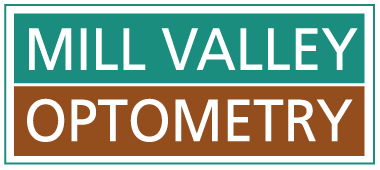If your child is working below potential, it is critical to determine if your child has difficulty with their eyesight or near visual skills. There is a high correlation between poor focusing or convergence skills with reading and learning ability. Even if your child has perfect distance eyesight, there may be a binocular vision or visual processing disorder that is making it difficult to learn efficiently in the classroom. Our Developmental Vision Exam is especially appropriate for any child with a diagnosed of a developmental delay, including Autism Spectrum Disorder, ADD, ADHD or dyslexia.
A comprehensive Developmental Vision Exam will determine if your child’s vision is interfering with reading comprehension and learning. Vision is a learned and developed skill that we must nurture throughout life. As a Developmental Optometrist, it is possible to prevent vision problems by testing the efficiency of one’s visual skills.
Vision is a dynamic process that involves the integration of the brain, eyes and body. During the initial evaluation, I will evaluate refractive status (nearsightedness, farsightedness and astigmatism), test distance and near visual acuity and screen for amblyopia or strabismus (crossed or lazy eyes). A complete eye health assessment will also take place.
Binocular Vision Exam
- Distance Vision: visual acuity (sharpness and clarity) at 20 feet distance.
- Near Vision: visual acuity for short distance (specifically, reading and computer).
- Focusing Skills: the ability of the eyes to maintain clear vision at all distances.
- Eye Tracking and Fixation Skills: the ability of the eyes to accurately and efficiently follow a line of print.
- Binocular Fusion: the ability to maintain single vision.
- Stereopsis: the ability to experience depth perception and peripheral vision.
- Convergence: the ability of the eyes to aim, move and work as a coordinated team.
- Color Vision: the ability to differentiate colors.
A complete assessment of your child’s Visual Processing skills is performed next. This includes visual memory, visual discrimination, hand-eye coordination, copy skills and handwriting, and visual spatial relations (knowledge of the right and left side of the body; letter reversals). I find it necessary to understand your child’s learning style, since we learn through our visual sense in relationship to auditory and motor skills. This is needed to provide a more accurate diagnosis and assist in determining the length of an Optometric Vision Therapy program.
Visual Processing Evaluation
- Reversal Frequency: confusing letters or words (b, d; p, q: saw, was; etc.)
- Visual Memory: the ability to store and retrieve visual information.
- Visual Form Discrimination: the ability to determine if two shapes, colors, sizes, or distances are the same or different.
- Visual Motor Integration: the ability to develop hand-eye coordination for sports and handwriting.
- Visual-Thinking: the ability to manipulate and organize what we see (helpful for math and spelling)
- Timing-Rhythm-Motor Planning: We evaluate the auditory processing skills as they relate to the visual skills and motor skills; keeping a beat while clapping to a metronome.
- Speed of processing: this gives us the ability to quickly assess the situation.
